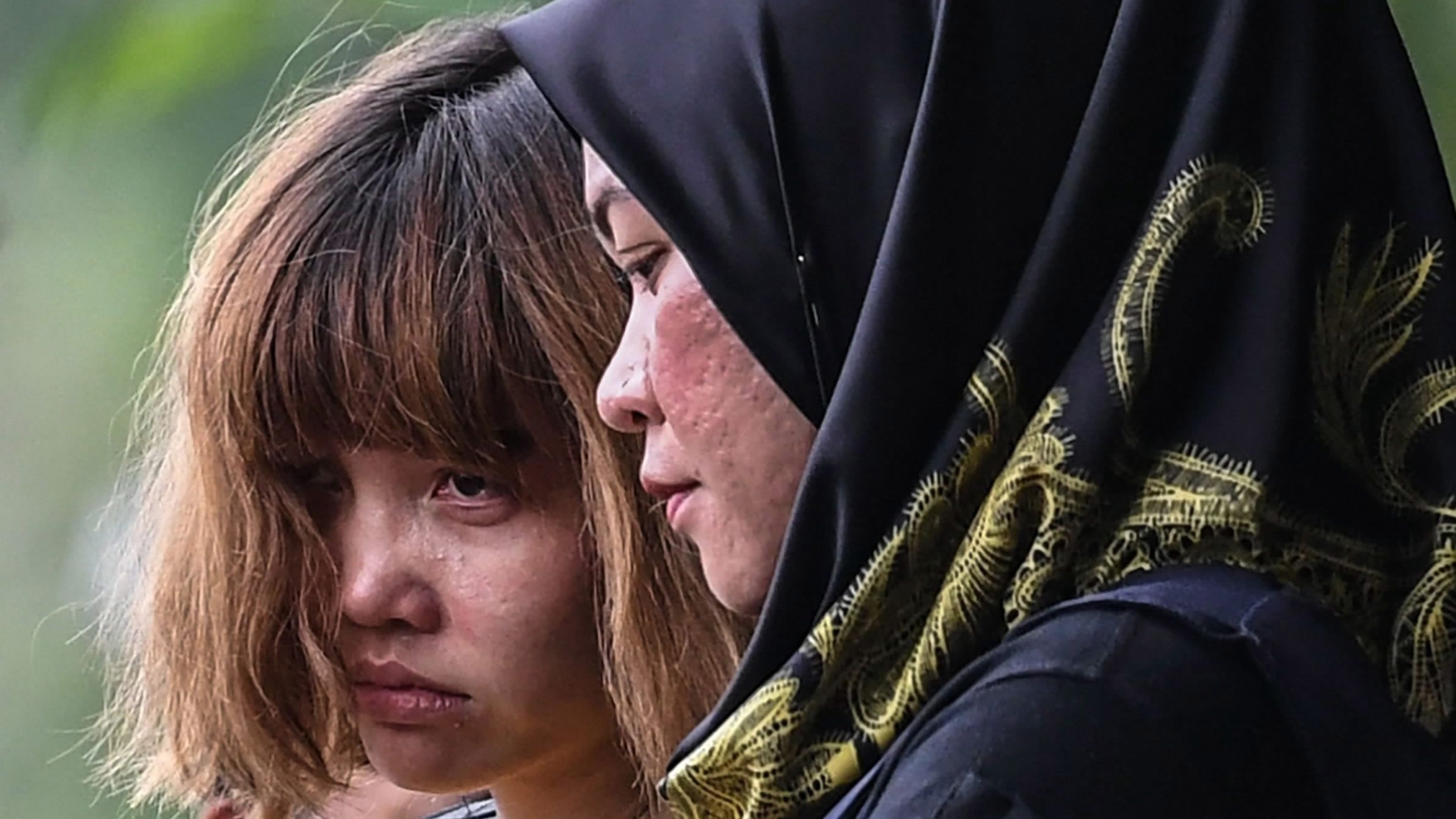Two women suspects pleaded not guilty of murdering Kim Jong Nam, half-brother of DPRK leader Kim Jong Un, on Monday as trial began in the sensational case that shocked the world with its Cold War-style modus operandi and triggered a diplomatic crisis between the Democratic People’s Republic of Korea, the Republic of Korea and Malaysia.
Indonesian Siti Aisyah, 25, and Vietnamese Doan Thi Huong, 29, entered their pleas through interpreters at Shah Alam High Court, outside the Malaysian capital Kuala Lumpur, nearly eight months after the brazen airport assassination.
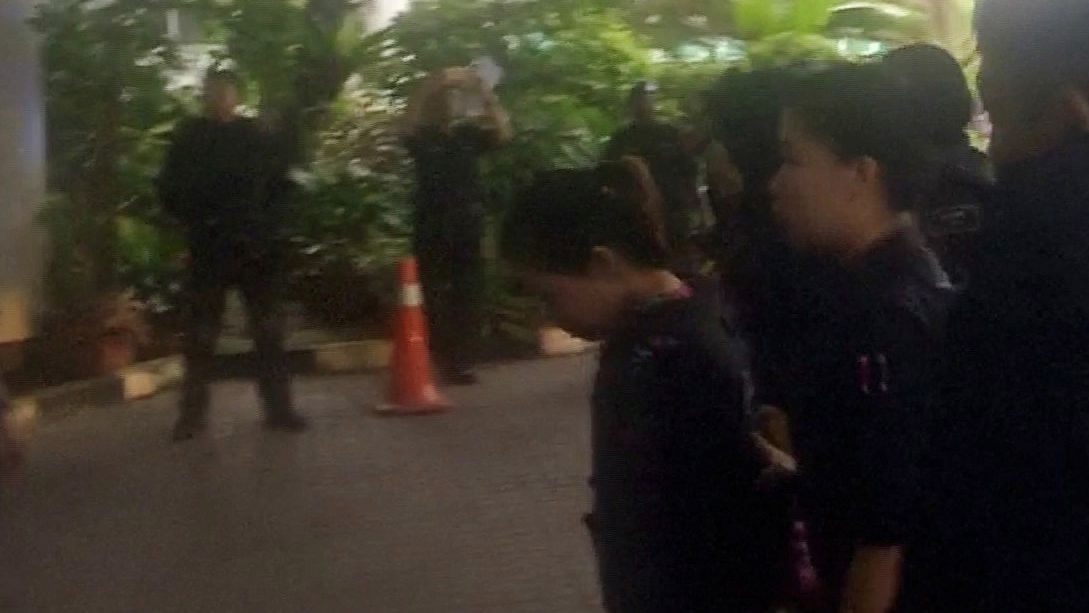
Indonesian Siti Aisyah is escorted by police as she arrives at at the Shah Alam High Court on the outskirts of Kuala Lumpur, Malaysia, in this still image taken from a TV footage, October 2, 2017. /Reuters Photo
Indonesian Siti Aisyah is escorted by police as she arrives at at the Shah Alam High Court on the outskirts of Kuala Lumpur, Malaysia, in this still image taken from a TV footage, October 2, 2017. /Reuters Photo
Prosecutor to use CCTV footage as evidence
The defendants are accused of smearing Kim Jong Nam’s face with the banned VX nerve agent on February 13 as he waited to board a plane to Macau at a crowded airport terminal in Kuala Lumpur, killing him within 20 minutes.
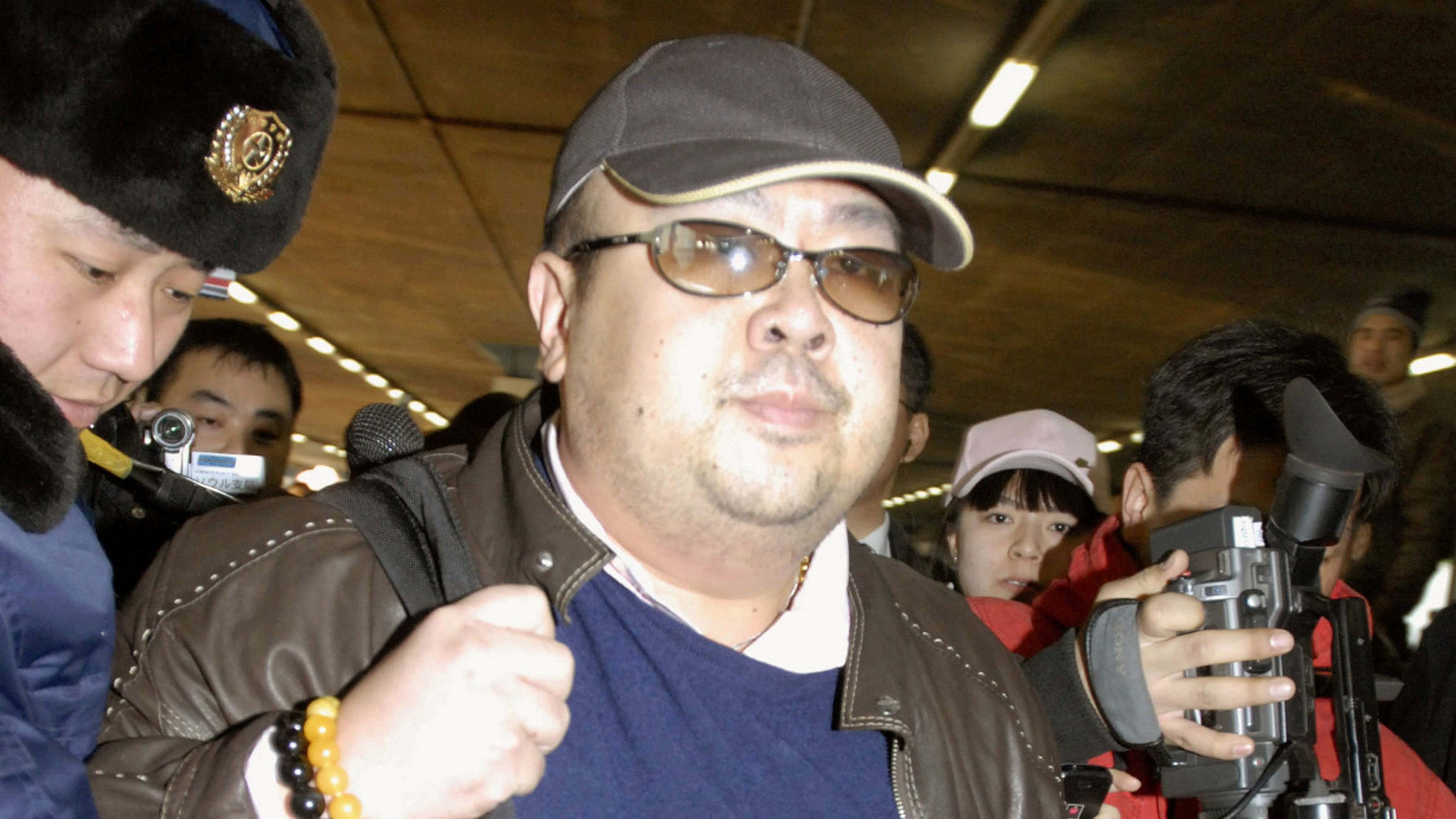
This file photo taken by Kyodo shows Kim Jong Nam arriving at Beijing airport in Beijing, China, on February 11, 2007. /Kyodo via Reuters Photo
This file photo taken by Kyodo shows Kim Jong Nam arriving at Beijing airport in Beijing, China, on February 11, 2007. /Kyodo via Reuters Photo
Prosecutor Muhamad Iskandar Ahmad read a statement giving details of the murder: "We will provide evidence that the dead victim was at (Kuala Lumpur International Airport) departure lounge when Siti Aisyah and Doan Thi Huong approached the dead victim and swiped a poisoned liquid on the face and eyes of the victim. The evidence clearly showed that their action to swipe the poison known as VX caused the death of the victim."
The chemical agent VX is so lethal that it is listed as a weapon of mass destruction.
The attack was caught on airport CCTV. The footage is likely to be used as evidence by the prosecutor.
The women claim they were duped into believing they were playing a harmless prank for a hidden-camera reality TV show. The women will face the death penalty if convicted.
Judge denies request for other suspects' identity
Aisyah and Huong were arrested just days after the murder. They are the only suspects in custody in a killing that ROK’s intelligence agency alleged was part of a five-year plot by DPRK leader Kim Jong Un to kill his estranged half-brother.
Malaysian police has gone on record saying several DPRK nationals suspected of involvement in the crime left the country on the day of the attack while others were allowed to leave later in a diplomatic deal with Pyongyang.
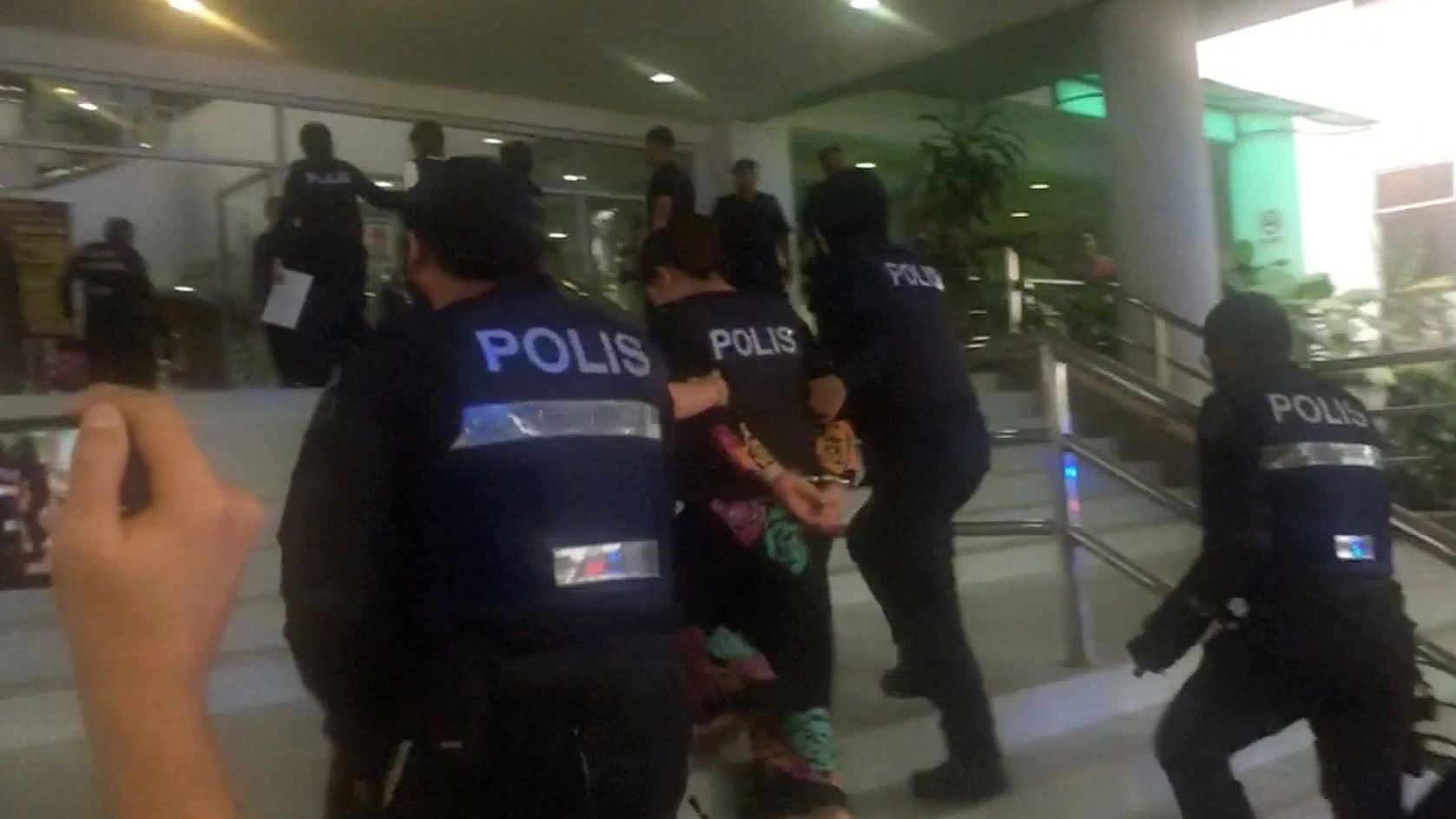
Indonesian Siti Aisyah is escorted by police as she arrives at at the Shah Alam High Court on the outskirts of Kuala Lumpur, Malaysia, in this still image taken from a TV footage, October 2, 2017. /Reuters Photo
Indonesian Siti Aisyah is escorted by police as she arrives at at the Shah Alam High Court on the outskirts of Kuala Lumpur, Malaysia, in this still image taken from a TV footage, October 2, 2017. /Reuters Photo
The defendants’ lawyers on Monday requested the court to provide them the identities of four people described in the charge sheet as having a common intention to kill Kim Jong Nam. Aisyah’s lawyer Gooi Soon Seng told the court: "A fair trial must include the right to know. The charge must be clear, not ambiguous."
However, the judge denied the defense's request after mulling over it for a while.
Defense lawyers say the real culprits have left Malaysia and that the women's innocence will be proven in court. "We are fairly confident that at the end of trial, they will probably be acquitted," Hisyam Teh Poh Teik, a lawyer for Huong, was quoted as saying by AFP.
Prosecutors insisted the women will get a fair trial as they began laying out their case, which is expected to take over two months as they examine 30 to 40 witnesses. The defense is then likely to be called.
Earlier, Aisyah and Huong arrived at the heavily guarded Shah Alam High Court, handcuffed and wearing bulletproof vests. About 200 police officers were deployed to guard the court premises.
The defendants arrived in a convoy of police cars with their sirens blaring. The diminutive pair bowed their heads as they were led into court past waiting journalists.
Suspects were 'tricked' and 'used'
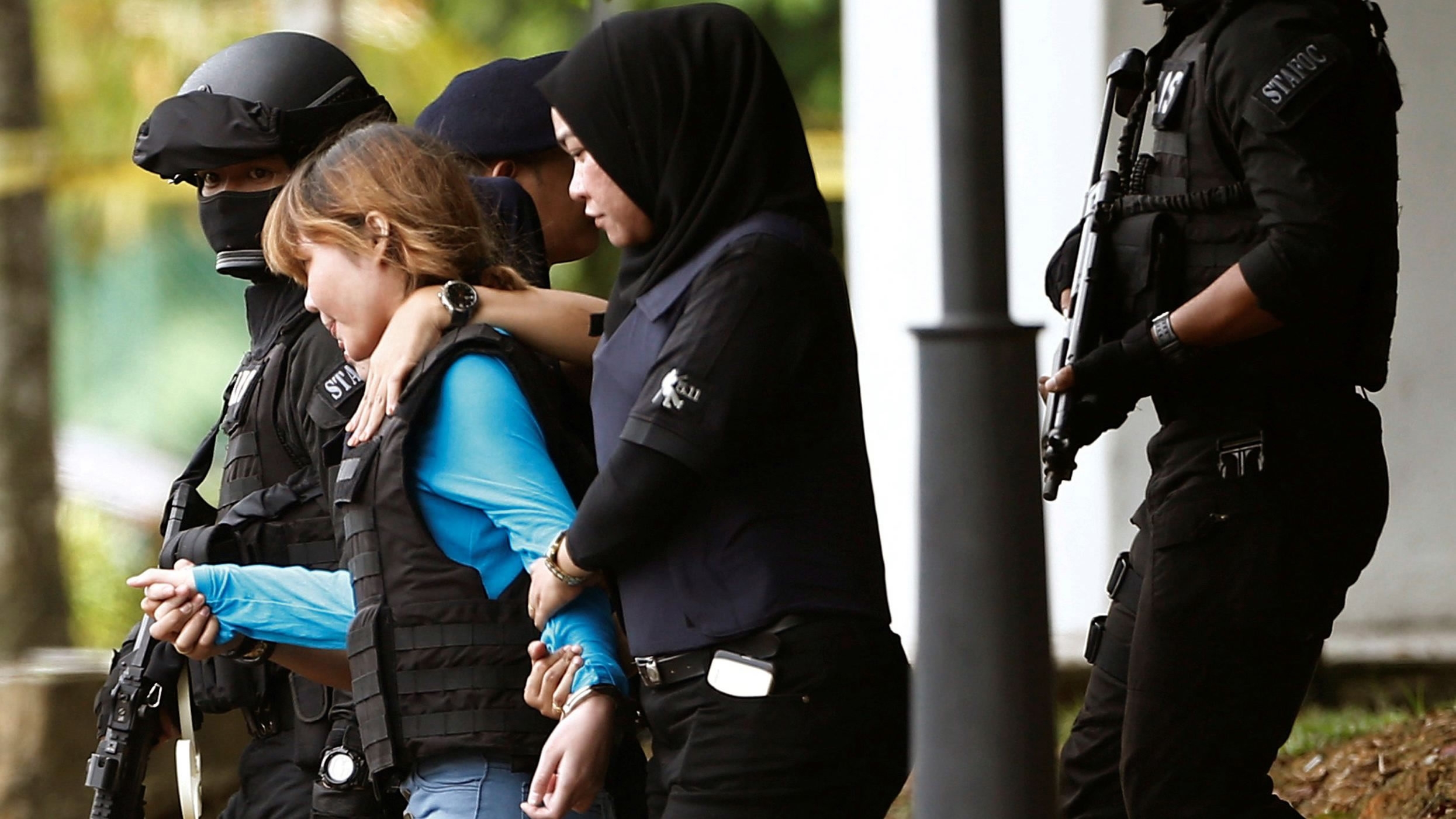
Vietnamese Doan Thi Huong is escorted by police as she leaves Sepang court in Malaysia on April 13, 2017. /Reuters Photo
Vietnamese Doan Thi Huong is escorted by police as she leaves Sepang court in Malaysia on April 13, 2017. /Reuters Photo
Meanwhile, Aisyah’s father said his daughter "would not have done such a thing, if she was not used by someone," according to a CNN report.
"We didn't see this coming at all. I don't think she would have been in all this at all, if it wasn't because of other people using her, getting her wrapped up in all this," Asria Nur Hasan said.
Huong's step-mother had also expressed similar apprehensions earlier, speaking to BBC's Vietnamese service.
"Huong is not educated. We feel she was tricked into being in the situation she's in," Vy Thi Nguyen, 54, was quoted by BBC Vietnamese as saying. "We hope the court will be fair to her," she added.
As the trial continued, Indonesia’s Ambassador to Malaysia, Rusdi Kirana, told reporters that his country is standing by its citizen Aisyah. "We can’t comment on the suspect, but what we can do is… to support our citizen. Regarding the law in Malaysia, we have to respect and let the court process how it should be," he said.
Kirana said Indonesian officials will be monitoring the trial, including specialists in the field of poison.
Diplomatic row amid unanswered questions
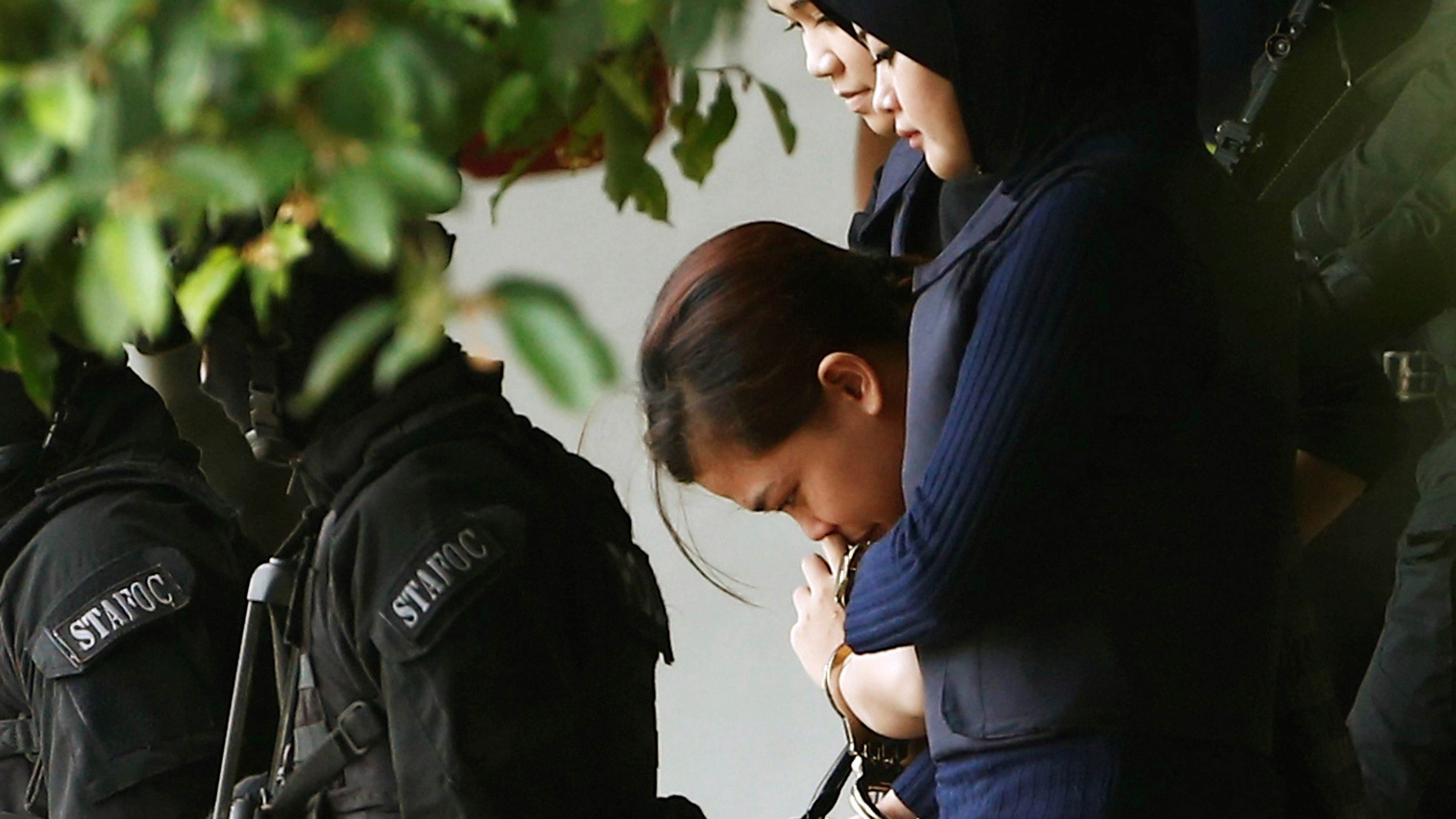
Indonesian Siti Aisyah is escorted by police as she leaves a Sepang court in Malaysia on April 13, 2017. /Reuters Photo
Indonesian Siti Aisyah is escorted by police as she leaves a Sepang court in Malaysia on April 13, 2017. /Reuters Photo
The murder sparked a heated row between DPRK and Malaysia, which had been one of Pyongyang's few allies, amid global concerns over the country's nuclear weapons program, with both countries firing each other's ambassadors.
Tensions later eased after Malaysia agreed to return Kim's body, in March, and the DPRK let go some Malaysians stranded in the country.
However, an Asian Cup football qualifier between Malaysia and DPRK was postponed amid the crisis, and delayed this week for the third time after Kuala Lumpur imposed a ban on travel to DPRK citing heightened global concerns over Pyongyang’s nuclear program.
Also, ROK has accused the DPRK of plotting the assassination of Kim Jong Nam, who was known to be a critic of his government and was living in exile overseas.
DPRK has vehemently denied the allegations.
The trial is expected to shed light on the many unanswered questions surrounding the murder. For instance, how two ordinary women struggling to make a living as migrant workers in Malaysia allegedly became involved in this high-profile assassination; or how a lethal nerve agent was used in the attack in a crowded airport that killed its target without harming anyone else.
(With input from agencies)

